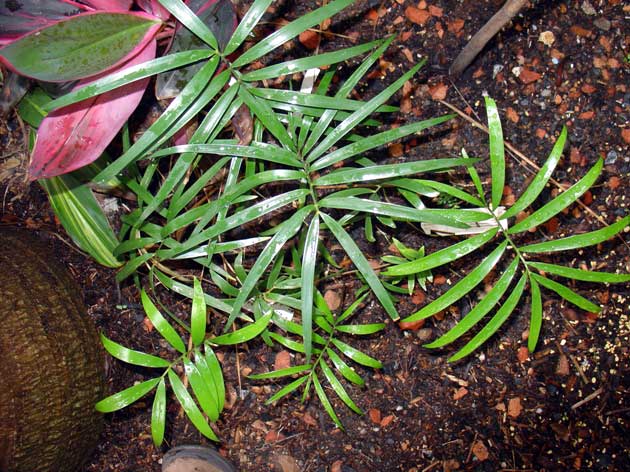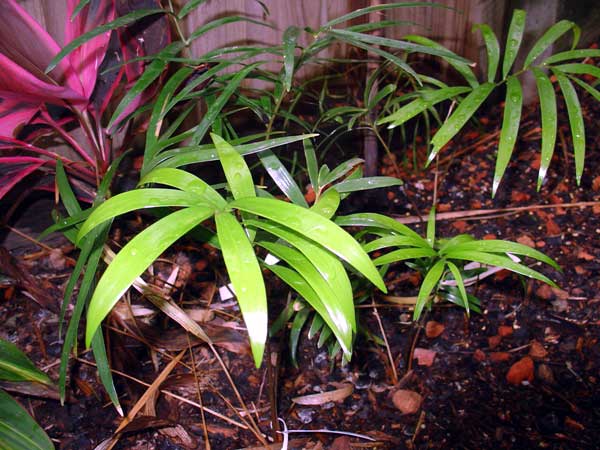Zamia portoricensis: Difference between revisions
From PACSOA Wiki
No edit summary Tag: Reverted |
No edit summary Tag: Manual revert |
||
| Line 28: | Line 28: | ||
<div class="row"> | <div class="row"> | ||
<div class="small-0 large- | <div class="small-0 large-6 columns"> </div> | ||
<div class="small-0 large- | <div class="small-0 large-6 columns"> | ||
[[File:Zamia_portoricensis02.jpg|frame|Figure 2. ''Z. portoricensis'']] | [[File:Zamia_portoricensis02.jpg|frame|Figure 2. ''Z. portoricensis'']] | ||
</div> | </div> | ||
Latest revision as of 13:03, 6 October 2024
| Welcome to the PACSOA Palms and Cycads wiki!
If you have any information about this species, please help by updating this article. Once you are registered you can contribute, change, or correct the text, and even add photos on this page. Click on the edit tab above and play around. Any mistake can be easily corrected, so don't be afraid. |
Conservation Status:[edit]
Vulnerable
It is becoming rare in habitat due to collection for the nursery trade,
as well as lack of regeneration. The pollinator(s) seem to have disappeared
(possibly due to aerial insecticide spraying),
and so no seed is being set.
Distribution & Habitat:[edit]
Endemic to Western Puerto Rico where it grows on very dry limestone soils that often contain an element of serpentine.
Description:[edit]
A small cycad with a subteranean stem, 2-10 leaves up to 1.5m long. There can be up to 60 leaflets, up to 25cm long and 0.8cm wide. Most similar in appearance to Zamia angustifolia.
Culture:[edit]
Sunny, well drained position in a limestone based mix.
Contributed by:[edit]
Colin Wilson (Figure 1&2)


